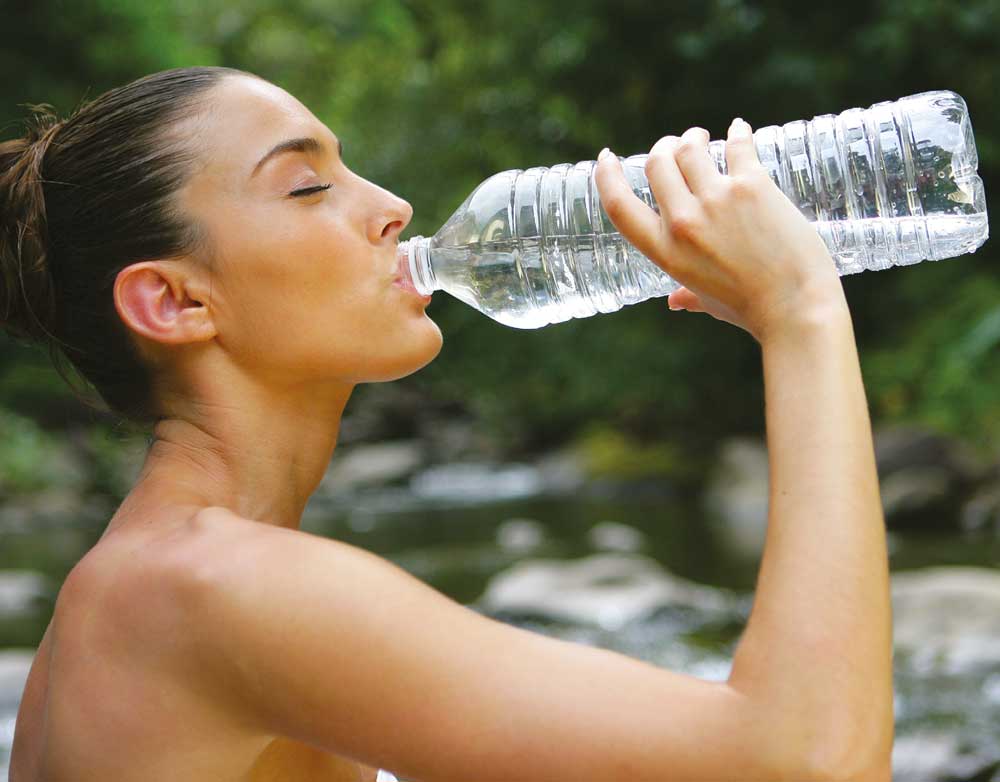INTOXICATION BY WATER
BY Andrea Melisa
Tormalli Francis
Nutritionist/Research Assistant, University of Colombo
We’re always being told to drink water and stay hydrated. But did you know that overhydration can lead to water intoxication? We reached out to Tormalli Francis, who was more than happy to shed light on the topic.
Q: What is water intoxication?
A: Water intoxication occurs when the normal balance of electrolytes in the body is jeopardised due to an excessive intake of water. When the body consumes water extremely quickly, body fluids become very diluted, which results in an electrolyte and mineral imbalance.
Q: Is water retention the same thing?
A: Water retention or oedema occurs when there’s excess fluid containing both solutes and water in the circulatory system, or tissues and cavities. This results in a swelling of the extremities.
Q: So how much is too much?
A: Water requirements vary with age, gender, body weight, activity levels, metabolism, medication and environmental conditions. The kidneys of a healthy adult can flush out about 25 litres of water a day but only eliminate a litre an hour.
Therefore, in terms of a set time period, drinking more than a litre an hour makes it difficult for the kidneys to flush out the water. Furthermore, the amount of water that older adults and children can consume hourly is less than what a regular adult can drink.
Q: What are the symptoms of water intoxication and are there any quick remedies?
A: Symptoms may include headache, nausea, vomiting and more seriously cramping, weakness of the muscles and intense fatigue. Snacking on salty food will help but medical attention must be sought immediately.
Q: Tell us about the short and long-term implications…
A: Water intoxication gravely affects the brain as excess fluid causes the cells to swell and bring pressure on the brain. This can eventually lead to a coma, seizures and even death if medical help isn’t sought urgently. Since clinical consequences may include neurological dysfunction and decreased mental functions, early detection is vital.

Q: Which medical conditions require careful water intake?
A: People suffering from chronic kidney disease, heart failure or liver disease should consult their physicians on their water intake and monitor the relevant quantities.
Q: Is water intoxication triggered by weight loss diets?
A: There isn’t sufficient research on the correlation between water intoxication and weight loss diets. While water does help in the process of losing weight, it’s best to consume everything in moderation – even the amount of water you drink.
WATER TOXAEMIA FACTS
- Water intoxication is also known as ‘water poisoning,’ ‘hyperhydration’ or ‘water toxaemia.’
- Marathon runners or endurance athletes are susceptible to water intoxication if they drink too much of it while running.
- Consuming more water to replenish what’s lost through perspiration further dilutes reserves of salts in the body.
- Water intoxication commonly occurs in patients suffering from psychogenic polydipsia, which is often caused by psychiatric disorders or mental illness.
- Though it’s possible to die from drinking too much water, it’s a rare occurrence.


